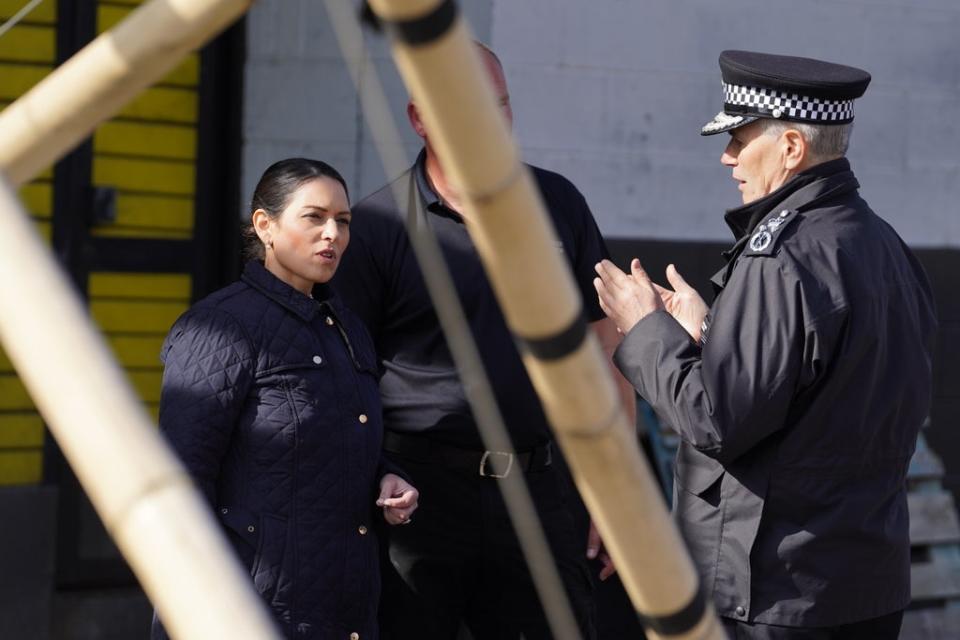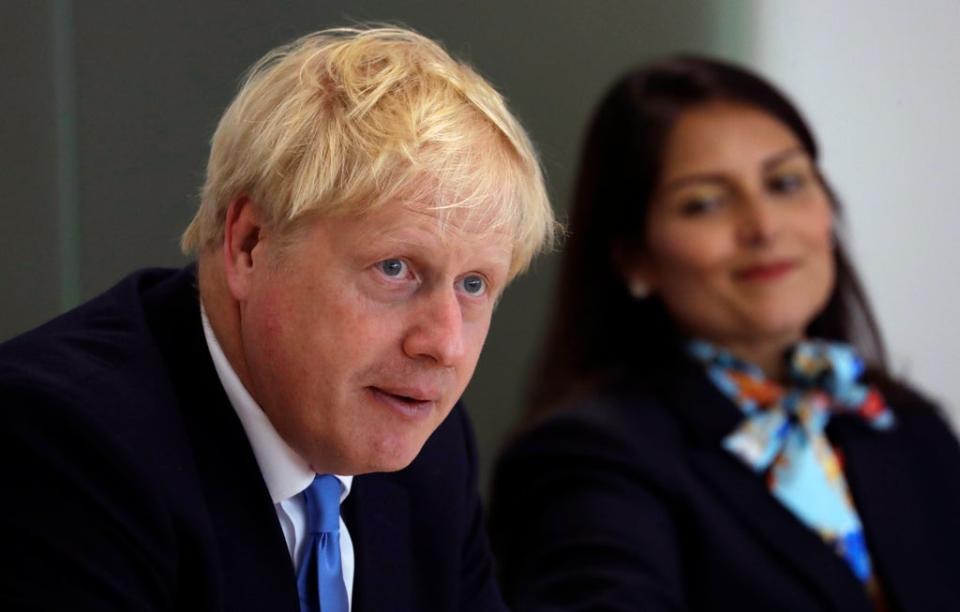Priti Patel set to give herself more powers to ‘intervene’ in policing

Priti Patel is attempting to give herself more powers to “intervene” in policing and ensure local forces are delivering the “government’s policing commitments”.
Planned changes to the Policing Protocol Order, which governs the relationship between the home secretary, chief constables, elected police commissioners and scrutiny panels, have sparked alarm.
A Home Office consultation, seen by The Independent, said ministers have been “taking a keener interest in and ‘leaning in’ on policing matters” since the protocol was drawn up in 2011.
Government revisions aim to “lower the threshold for home secretary intervention in appropriate circumstances, [equipping her] to intervene earlier as required, thus reducing the risk of failing to deliver effective policing”.
They would change clauses seen by police chiefs as key safeguards of their operational independence, including cutting out a commitment for the home secretary to use intervention powers as a “last resort”.
The new wording put forward by the Home Office reads: “The home secretary has reserved powers and legislative tools that enable intervention and direction to all parties.
“These powers will be used if it is determined by the home secretary that such action is necessary in order to prevent or mitigate risk to the public or national security.”
Gareth Morgan, who retired as the chief constable of Staffordshire Police earlier this year, said the government appeared to be “bypassing” elected police and crime commissioners.
“The current protocol has not prevented interference in operational policing and a blurring of local accountability with an over-reaching home secretary,” he added.
“Any proposals to further bolster the home secretary’s remit should be progressed through parliament to agree how accountability should function.”
Mr Morgan, who was involved in drawing up the 2011 protocol, said the document needed updating but the proposals put forward by the government were “too fundamental” to the structure of British policing to be introduced through amendments.
It comes after the trial of Extinction Rebellion activists who blockaded a Rupert Murdoch-owned printworks revealed that Ms Patel had personally phoned police chiefs seeking “early intervention and removal of the protesters”.
The revelations caused the trial to be adjourned, and triggered defence arguments that demonstrators should be acquitted because of the “huge political pressure” exerted on police.
A judge ruled that the police had maintained their operational independence and the protesters were convicted.
The government wants to amend the policing protocol to “make explicit the home secretary’s role to set the government’s strategic direction on national policing”, and to hold the “policing sector to account for the delivery of the government’s policing commitments”.
“It is the responsibility of police and crime commissioners (PCCs) and chief constables to reflect on and implement national policy at a local level,” the new order would read.

The document tells chief constables to “expect” Ms Patel to ask them for information about policing matters, or order them to report to the National Policing Board that she has chaired since its creation in 2019.
The consultation, which closed on 2 May, also asked police chiefs and commissioners for their views on a new requirement for forces to act “in a politically neutral manner”.
Chief constables told The Guardianthey feared the wording could restrict legitimate comment on proposed legislation or the effects of budget cuts.
In its response to the consultation, the Association of Police and Crime Commissioners there was no statutory power for some of the requirements being added to the protocol.
“Any attempt to create a legal responsibility for police and crime commissioners to provide information to the home secretary through the protocol would be ultra vires,” said the response, as reported by The Guardian.
“Creation of new powers of strategic oversight can only be achieved through primary legislation and must be subject to the full scrutiny that is required of primary legislation.”
In a statement to parliament in March, Ms Patel said changes to the protocol were part of a wider review looking at the role of elected police and crime commissioners.
She said the consultation was to “seek views from our policing partners on how we can refresh this document to provide a ‘brighter-line’ on the boundaries of operational independence and to better reflect my role as home secretary”.
“If we are going to deliver on our shared mission to cut crime, it is essential that all those involved in policing understand their respective roles,” she added.
The Home Office has denied undermining the operational independence of police forces.
Its consultation said changes to the protocol aimed to “bring clarity and avoid further tensions between operational independence and oversight and accountability”.
It added: “Updating the protocol will help to clarify the home secretary’s role in bringing policing leaders together and setting the overall national policy direction for policing.”

